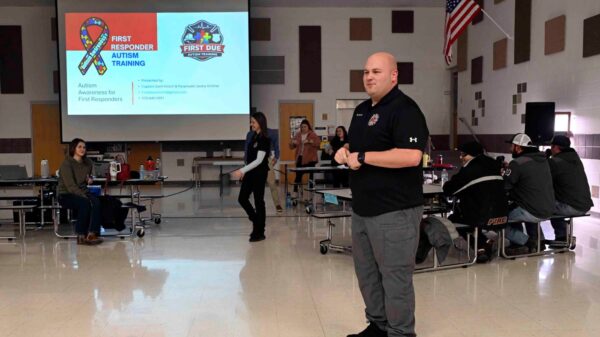BREAKING: A groundbreaking virtual reality program at the University of Connecticut is taking aim at the alarming rise of gambling addiction among college students. As reported, problem gambling rates among students are now estimated to be two to four times higher than their adult counterparts, driven by easy access to online poker, virtual casinos, and sports betting apps.
Since January 2024, associate professor Robert Astur has been leading a pilot study that immerses students in a VR casino environment, challenging them to identify and eliminate gambling triggers. Initial feedback from participants indicates a significant decrease in gambling urges, with students reporting enhanced control over their impulses by the end of the program.
Astur’s innovative strategy is inspired by previous research on virtual reality’s effectiveness in combating smoking addiction, which revealed a 15% abstinence rate among VR participants compared to just 2% in a control group. The complete analysis of the gambling study’s data is expected to be released later this summer, paving the way for a potential revolution in addiction therapy.
“The future of addiction therapy might just be virtual,” Astur confidently stated, emphasizing the need for effective solutions in light of the severe consequences linked to gambling addiction, including depression, suicide risk, poor academic performance, and damaged relationships.
The VR program employs open-source software to create an immersive experience, complete with realistic slot machines and card tables. Participants, such as senior psychology major Allison Millspaugh, engage with the virtual environment by using VR controllers to smash slot machines and set blackjack cards ablaze, symbolically confronting their gambling urges.
Doctoral student Finn Zakas highlighted the vulnerability of young adults, noting that their brains are still developing, which makes them particularly susceptible to addiction. The pilot study involved 30 students recruited through UConn’s Student Digest, who provided feedback via follow-up surveys and received small stipends for their participation.
As Astur and his team prepare for a larger scale study, the stakes are undeniably high. “The connection between gambling addiction and various mental health issues is critical,” he stated. The hope is that the VR approach can extend beyond gambling, offering insights into treatment for other compulsive behaviors such as gaming, cannabis use, and smartphone addiction.
Stay tuned for updates on this innovative approach to addiction therapy as the research progresses. With the potential to reshape treatment methods, the implications of Astur’s findings could be profound for college campuses and beyond.








































































